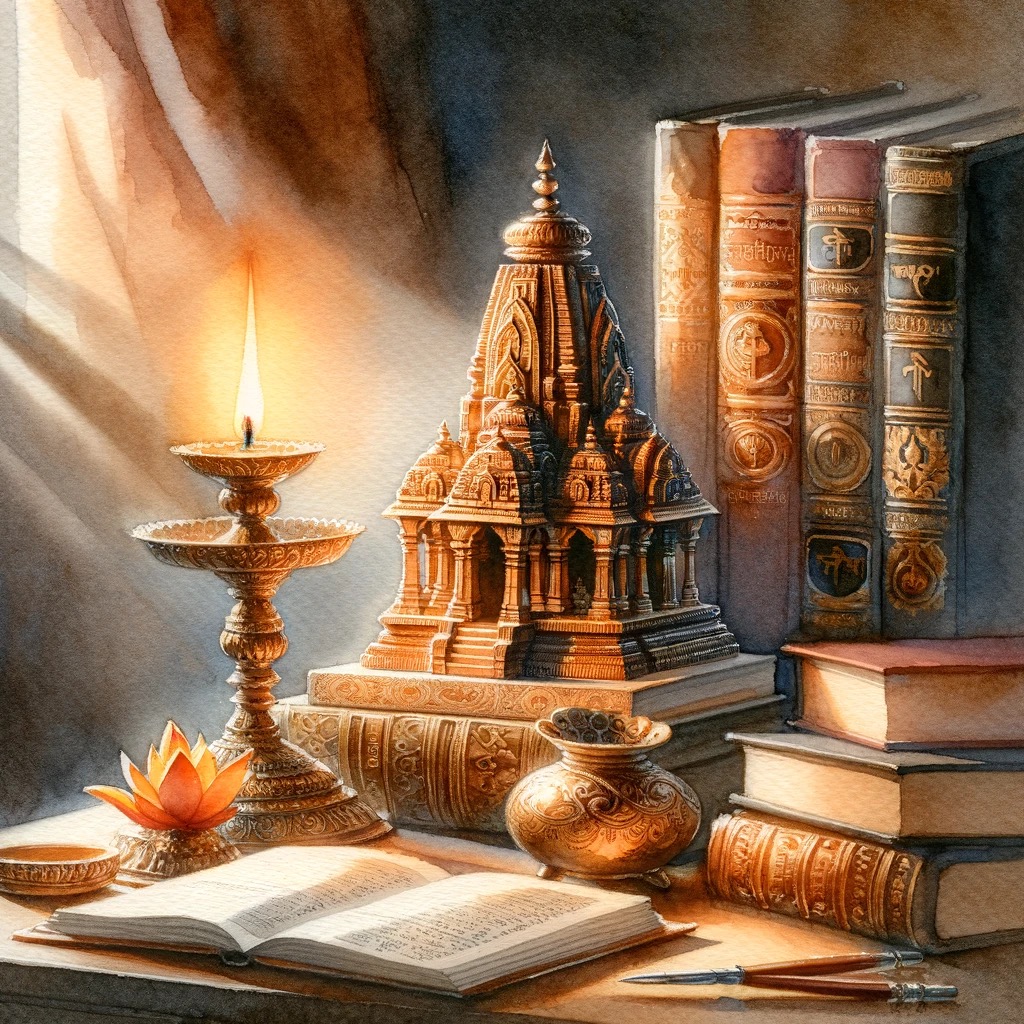Introduction to Shri Ram Swarup
Śrī Ram Swarup was one of the greatest Hindu thinkers to come out of India in the last century. This course is an introduction to his works and thoughts, leading learners to a better understanding of Bhāratavarṣa and Sanātana Dharma and our place in the scheme of things.
Overview
Contents
Module 1
Inverting the Gaze: A Hindu View of the World
Module 2
The Mind of the Other: A Critique of Islam
Module 3
The Missionary Threat: A Critique of Christianity
Module 4
Theory and Practice of Communism: A Critique of Communism
Module 5
Hindu View of Buddhism and Sikhism
Module 6
On Hinduism: Looking upon Ourselves
Module 7
Meditations: A Sādhaka’s View of the World
Module 8
Sanātana Dharma and Pagan Religions of the World
Session Recordings

Module 1
Inverting the Gaze: A Hindu View of the World

Module 2
The Mind of the Other: A Critique of Islam

Module 3
The Missionary Threat: A Critique of Christianity

Module 4
Theory and Practice of Communism: A Critique of Communism

Module 5
Hindu View of Buddhism and Sikhism

Module 6
On Hinduism: Looking upon Ourselves

Module 7
Meditations: A Sādhaka’s View of the World

Module 8
Sanātana Dharma and Pagan Religions of the World
Sign up to view session recordings
These recordings are part of our member-only exclusive access.
Upgrade to get full access to all course recordings and other membership benefits
Key Takeaways
Svayaṃbodha
Who are we? Every society has to ask this question every time we lose sight of our identity, origin and roots. What does being Hindu mean? What are the universal principles of Hindu dharma? What are the core ideas of Bhāratīya culture and civilization? Shri Ram Swarup has answered all these questions about the fundamental identity of Hindu culture and people. This course will attempt to develop this profound sense of svayambodha, who we are, through the works of Shri Ram Swarup.
Śatrubodha
India is locked in a civilizational struggle with two colonialisms: the European Christian colonialism and Middle Eastern colonialism. It is necessary to understand the theological, institutional and religious inspiration behind them. It is necessary to understand the nature of prophetic monotheistic religions like Islam, Christianity and Judaism and how they are different from yogic traditions like Hindu dharma, Buddhism, Jainism etc. This course will attempt to do it through the works of Shri Ram Swarup.
Respect for Tradition
Dharma makes itself manifest through traditions, customs and rituals. That is why, ever since the Vedas were written in Bhāratavarṣa, rituals have a central importance in Sanātana dharma. But how do these rituals work? How do mantras operate? How do they connect the human to the divine? Śrī Ram Swarup has explained how the Hindu cosmos virtually works and during this while he has explained the deepest of life’s mysteries. This course will develop a deep understanding of the dharmic tradition and will consequently generate respect for the same.
Plan for Pagan Revival
One of the greatest dreams of Śrī Ram Swarup was to revive the pagan, polytheistic traditions all over the world. And it was his firm belief that Sanātana dharma, being a great living tradition is capable of providing a cultural umbrella under which diverse non-monotheistic, non-Abrahamic traditions of the world can unite and also take guidance from. He considered it absolutely necessary for posing a united front against monotheistic colonialisms. This course will advance this path by making you understand the need and plan for the same.
Who is this course for?
- Are you curious about the uniqueness of Bharatiya civilization and how it is different from other great cultures? Are you a Hindu who feels deeply invested in Bharatiya culture? Do you feel that you need to better understand this ancient civilization which is often claimed to be the longest living civilization on earth? Are you curious to know the ways in which Bharatiya civilization is different and distinct from the others? Do you feel there are hostile civilizational forces which want to destroy this ancient civilization? Do you want to do something about it? Then join this course. This course will tell you who we are, and who we are not. It will tell you the most salient points in which the Hindu culture and Sanātana dharma are different from monotheistic cultures. It will also tell in shortest span possible the most fundamental traits of our own culture and civilization. It will tell you what are the universal features and fundamental propositions which makes us who we are.
Know your Instructor

Pankaj Saxena
Pankaj is an author on Hindu temples, arts, literature, history and culture. His writing explains the beauty of Sanātana Dharma through stories about traditions, communities and culture. He has a deep interest in cultural anthropology, evolutionary biology and ecology, and has visited more than 1600 Hindu temples.
Our Draṣṭā online courses are designed to help you in your learning journey
Become a part of the community and engage, share, discuss and deepen your learnings
Interact with the course instructor through live sessions
Access to session recordings and materials


Become a member and dive into the Indic universe
Brhat subscription gives access to exclusive member-only content rooted in the Dharmic worldview.
Starts at ₹500 per month.